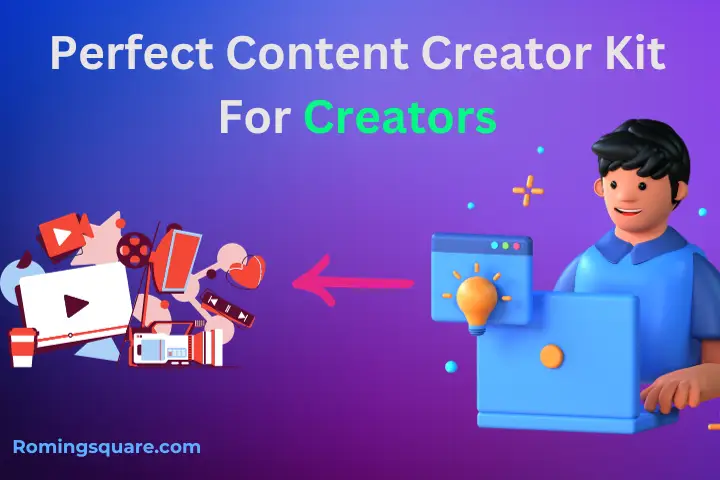
Gaining expertise in niche skills that are in high demand can help you establish a successful blog quickly. By focusing your content around specialized, sought-after capabilities, you position yourself as a thought leader.
This allows you to attract an engaged audience interested in learning from your experience. As an authority in your field, you can then monetize your site through avenues like digital products, affiliate marketing and more.
What Are Niche Skills?
Niche skills are specialized abilities or expertise in a specific, narrow field or industry. Niche skills tend to be in-demand within their particular niche, though the overall demand may be small compared to more common skills.
The key is to identify and develop skills that make you exquisitely valuable within a niche. Spotlight those one-of-a-kind abilities to carve out unique career opportunities!
Below are 10 niche skill areas that are great to start blogging about today:
1. Cloud Computing
Cloud computing allows businesses to access computing services like servers, data storage, software and analytics over the internet. This makes them more affordable, faster and easier to deploy at scale.
Some key advantages of the cloud include:
- Faster delivery of IT resources
- Increased mobility and global access
- Greater collaboration efficiency
- Lower costs
- Quick scaling to meet demands
As companies continue embracing digital transformation, cloud migration is accelerating. This creates strong demand for experts who can advise businesses on topics like:
- Transitioning legacy systems to the cloud
- Comparing cloud providers and offerings
- Optimizing cloud costs and efficiency
- Ensuring data security and compliance
- Leveraging cloud-native capabilities like AI/ML, IoT and blockchain
2. Business Process Automation
Business process automation focuses on using technology to streamline operations, reduce costs and improve productivity. This allows employees to focus their time on high-value tasks instead of repetitive manual work.
Automation is achieved by integrating tools like:
- Customer relationship management (CRM) platforms
- Document management systems
- Accounting/ERP software
- Chatbots/virtual assistants
- Scheduling/calendar apps
- eSignature solutions
Those experienced with successfully automating key business functions can provide tremendous value. You can break into this niche by blogging about:
- Building a business case for automation
- Selecting the right tools for different needs
- Implementation best practices and pitfalls to avoid
- Measuring automation ROI
- The future of hyperautomation and no-code/low-code platforms
3. Digital Illustration
Digital illustration involves using creative software like Adobe Illustrator to produce images, drawings, logos and other designs.
Illustrators are frequently commissioned by brands to create custom artwork for marketing materials, publications, social media and more.
An illustration blog can cover topics like:
- Illustration tips, tricks and techniques
- Using mood boards for inspiration
- Bringing concepts to life through visual narratives
- Licensing illustrations
- Effective use of color palettes
- Promoting your illustration portfolio
- Branding basics for freelance illustrators
- Reviews of design tools and software
4. Cybersecurity and Data Protection
Cyber threats like hacking, ransomware and phishing attacks pose a growing risk to businesses worldwide. At the same time, regulations around data privacy and compliance are expanding.
This creates huge demand for cybersecurity expertise across industries. A niche blog could tackle topics like:
- The evolving threat landscape
- Security awareness training for employees
- Cloud security best practices
- Effective access management and controls
- Network and endpoint security
- Data encryption methods
- Cyber risk management for small businesses
- Developing an incident response plan
- Cybersecurity frameworks and compliance (PCI DSS, HIPAA, GDPR, etc.)
5. Ecommerce Management
The ecommerce sector continues seeing massive growth, creating opportunities for those experienced in successfully managing online stores. You can start an ecommerce-focused blog covering things like:
- The different ecommerce business models – dropshipping, private label, wholesaling, etc.
- Setting up an online store with platforms like Shopify, WooCommerce, Magento, etc.
- Design and UX optimization for increased conversions
- eCommerce SEO tactics to drive organic traffic
- Digital marketing strategies for ecommerce brands
- Leveraging tools like CRM and email marketing
- Financial topics – ROI, inventory management, accounting
- Building a brand and community around your store
- Emerging ecommerce trends and innovations
6. Virtual Reality
Virtual reality (VR) provides highly immersive digital experiences using headsets and similar devices. VR has applications across gaming, real estate, health care, education, design and many other sectors.
As VR technology improves and becomes more accessible, demand grows for VR development skills as well as insights on leveraging VR capabilities. You can focus your blog on topics like:
- The basics of how VR works
- VR hardware options and comparisons
- Developing VR games and applications
- Troubleshooting VR performance issues
- Using VR for employee training and onboarding
- VR marketing – branded experiences, virtual events, etc.
- The future of augmented reality (AR) and mixed reality (MR)
- VR use cases and success stories across industries
7. Video Editing
Video content is more engaging and effective than static images alone. But editing footage into compelling videos with clean audio requires expertise.
If you have advanced skills in editing software like Adobe Premiere, After Effects or Final Cut Pro, you can teach others techniques for:
- Optimizing videos for different platforms – YouTube, Facebook, Instagram, etc.
- Color correcting and grading footage
- Motion graphics and visual effects
- Audio mixing, sound design and background scores
- Working with different video file formats and codecs
- Video branding fundamentals
- Creating videos on a budget
- Reviews of video editing plugins and tools
- Building a video production portfolio
8. Data Analysis with Excel
Data analysis skills are invaluable for business roles. Excel remains one of the most widely used tools for organizing, modeling and visualizing data into insights.
You can create tutorials and guides focused on using Excel for:
- Data cleaning and preparation
- Advanced functions like VLOOKUPS and PivotTables
- Statistical analysis and regressions
- Financial modeling for forecasting and planning
- Creating interactive dashboards and reports
- Effective data visualizations and charts
- Modeling techniques like sensitivity analysis
- Macro development for automating repetitive processes
- Tools and plugins for enhancing Excel
9. 3D Modeling
3D modeling allows for creating digital, 3-dimensional designs that can be used across applications like gaming, animation, product design, architecture, 3D printing and more.
Skilled 3D modelers are in demand, especially those proficient in programs like:
- AutoCAD
- Maya
- Blender
- Cinema 4D
- Tinkercad
- Fusion 360
Your blog could provide tutorials and tips on 3D modeling topics like:
- Getting started with modeling basics
- Working with surfaces, textures and lighting
- Rigging models for animation
- Architectural visualization
- Developing 3D printable designs
- Troubleshooting common modeling issues
- Modeling for virtual reality
- Reviews of 3D software, plugins and assets
10. Mastering AutoCAD
AutoCAD is the industry standard CAD (computer-aided design) program used by architects, engineers and other professionals to draft 2D and 3D designs.
Becoming an AutoCAD expert presents great monetization opportunities through an instructional blog. You can create in-depth guides on:
- Navigating the AutoCAD interface and tools
- 2D drafting techniques
- Generating detailed drawings from 3D models
- Automation through customization, scripts and APIs
- Collaborative workflows with AutoCAD web and mobile apps
- Applying AutoCAD across architectural, mechanical and civil engineering domains
- Top plugins and add-ons for boosting productivity
As a niche skills blogger, you get to share your expertise on topics you’re passionate about while connecting with an interested audience. The niches above are just a sampling – there are many others waiting to be explored.
The key is choosing an area where you have advanced skills or experience that people are actively seeking help with. This allows you to provide unique value through your content. By establishing yourself as a thought leader, you can build community and open up monetization pathways.
FAQs
What are niche skills?
Niche skills are specialized abilities and expertise in a specific, well-defined field or area of focus. They involve deep knowledge of a narrow topic that is in high demand but has a low supply of experts.
What is the meaning of niche skills?
The meaning of niche skills is having in-depth knowledge and abilities in a narrow, focused topic that has high demand but low supply of experts.
How do I choose the right niche for my blog?
Consider your expertise, interests and experience. Focus on an area where you have advanced niche skills that align with audience needs and demand. Research keywords to assess search volume and competition for your niche skills topic.
How do I attract people to my niche blog?
Create helpful, engaging content that provides unique value related to your niche skills. Promote your niche skills posts through social media, guest posting, forums and optimizing for relevant keyword searches.
What’s the best way to monetize a niche blog?
Once you establish authority in your niche skills, you can offer digital products like ebooks/courses, sell niche skills services, run ads, do affiliate marketing and sponsorships, or use a hybrid approach.
How often should I post on a niche blog?
For a new niche skills blog aiming to build traffic, 1-2 times per week is a good starting point. You can increase frequency as you gain more niche skills readers and content.
Should I focus on one niche skills or cover multiple topics?
It’s best to start with one focused niche skills area where you can become a domain expert. Once your niche skills blog is established, you can potentially expand into complementary sub-niches.
Can I hire writers to help create content?
Yes, but make sure they are knowledgeable about your niche skills topic. As the blog owner, you should still be actively involved in niche skills content creation and branding.
How important is SEO for a niche blog?
Very – optimizing your niche skills content for search helps readers find your posts for relevant queries. So incorporate SEO best practices in your niche skills blogging strategy.





